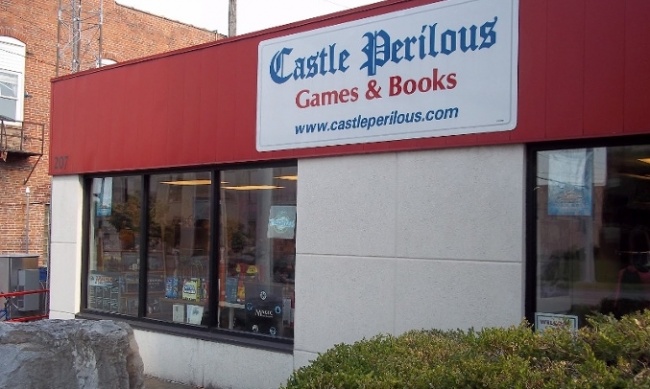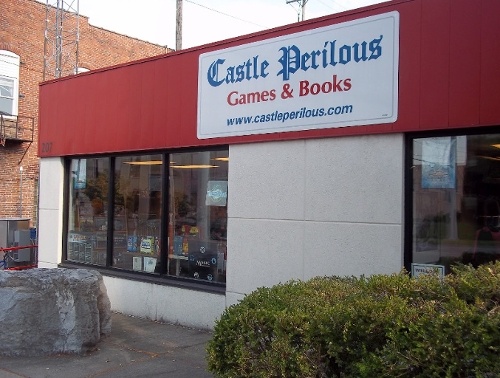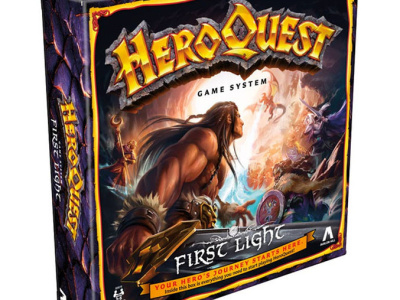Rolling for Initiative is a weekly column by Scott Thorne, PhD, owner of Castle Perilous Games & Books in Carbondale, Illinois and instructor in marketing at Southeast Missouri State University. This week, Thorne looks at the reasons why distributors exist in the hobby games business.
Although online retailing has an outsized amount of attention (thanks, Amazon) and does an amazing amount of sales (Amazon, again, does $259,000 in sales in 60 seconds, more than a small game store will do in an entire year). However it is still important to remember even with all that, online sales accounted for just under 12% of total retail sales, and while most people perceive the book and game industry as hit especially hard by online sales, book stores are seeing a resurgence with their numbers growing annually for the past 7 years. Game store numbers have fluctuated as well, especially those focusing on trading card games as the barrier to entry for such stores is comparatively low. However, board, RPG and TCG sales remain pretty strong. Anecdotally, we still sell the Player’s Handbook for Dungeons & Dragons 5th edition regularly, moving six copies at full retail last week and about a copy of the core Catan game per week, also at full retail to customers that come into the store. So while it would be foolish to ignore or naysay online retailing, brick and mortar remains strong and as long as there are brick and mortar retail stores, there will remain a need for distributors such as those listed above. Why? Two main reasons:
Breaking Bulk. Most games are shipped in case quantities. Betrayal at House on the Hill, for example, comes in cases of 4, as does USAopoly’s Harry Potter Deckbuilding Game. Almost no customers that I have had in the past 10 years have wanted 4 copies of the same game. They want one. So distributors (and retailers in some cases) buy games in case quantities and then break them down into smaller quantities or even single units to sell to customers. A prime case in point of this is any trading card game. The publisher ships out quantities in cases of 6 booster boxes to distributors. The distributor breaks down the cases into six individual booster boxes, which it then sells to retailers. The retailer then breaks down the booster box into individual packs, which then sell to customers. Incidentally, this is an advantage the brick and mortar store has over the online retailer as shipping charges for single packs generally eat up the profit made from selling individual packs, especially if sold at a discount as many online retailers are wont to do.
Assortments. Customers want to select from a number of different products when they come into a store (or go to a website, for that matter). Retailers and consumers could go to a myriad of publishers to get their products but it is far more convenient to go to one location, just as the advent of the supermarket eliminated the greengrocer and butcher from many cities. Far more convenient to purchase food from one supermarket than visit several different shops to fill your grocery list. It’s the same thing with retailers. We would rather, if feasible, purchase most of our stock from one distributor instead of putting in orders with a number of individual publishers. There are some savings to be had from shopping a number of different publishers but the time consumed often outweighs that.
We will probably see some consolidation of distributors over the next few years, especially if Asmodee maintains its exclusive arrangement with Alliance, but the distribution system will remain for quite some time.
The opinions expressed in this column are solely those of the writer, and do not necessarily reflect the views of the editorial staff of ICv2.com.

Column by Scott Thorne
Posted by Scott Thorne on August 21, 2017 @ 2:22 am CT
MORE GAMES
Thursday July 31, 2025; 'D&D,' 'Riftbound,' and More!
August 8, 2025
The story of Gen Con 2024, as told through ICv2's staff photos, began on the morning of Thursday July 31, 2025 on the convention hall floor.
New Expansion Set for the Classic Fantasy Board Game
August 8, 2025
Hasbro will release HeroQuest: First Light, a new expansion for the classic fantasy board game, into retail.
MORE COLUMNS
Column by Jeffrey Dohm-Sanchez
August 7, 2025
ICv2 Managing Editor Jeffrey Dohm-Sanchez lays out the hotness of Gen Con 2025.
Column by Rob Salkowitz
August 5, 2025
In this week's column by Rob Salkowitz, he looks at the industry's biggest show, held in the midst of some existential issues.








